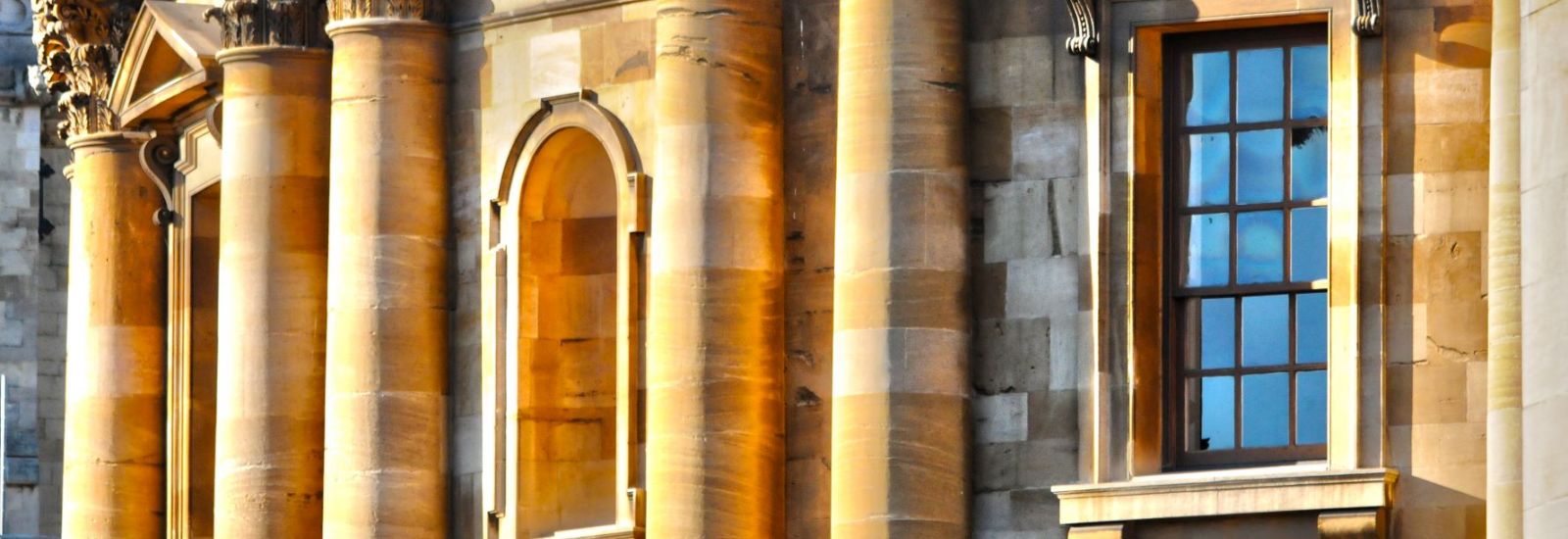
Before you arrive
Starting at university can feel like stepping into the unknown, but there is no need to worry. By completing all relevant tasks in the checklist below, you can ensure your arrival at the University goes smoothly.
1. University card form and arrival information
If you accept the University’s offer of a place you will enter into a contract with the University. Once you have met the conditions of your offer, you will be sent a University card form to sign and return together with a passport photograph or, for some postgraduate courses, an online card form request to complete. You may also receive college contractual documents and arrival information at this time. To make sure that you receive important documentation promptly, please notify your college or department of any changes to the contact details and email address you supplied during the admissions process.
2. Access to IT systems and services
Once you have signed and returned your University card form, or, for some postgraduate courses, completed the online card form request, and in advance of the start of term, you will be sent your University of Oxford Single Sign On (SSO) IT account details, giving you access to central IT services. You can also then download the MyOxford app (also accessible on a web browser) for quick access to all the systems and services you need in one place. Information on the services available, your Oxford email account, and how to set up your IT access, is available on the Getting started with IT web pages.
3. Starting your University registration process
An essential part of being a student of the University is the annual completion of registration. As a new student you should complete the first step of your University registration by verifying your details online using Student Self Service before you arrive. You will need to use your Oxford Single Sign On details to access Student Self Service.
You need to register in order to attend your programme of study, release your loan from the UK Student Loans Company/sponsor/awarding body, use your University email account, obtain your University Card, print an enrolment certificate, be eligible to take examinations and access your results. Your status as a member of the University is not confirmed until your registration has been completed by your college (or department for non-matriculated courses), which usually takes place in Week 0 of term.
4. Complete online consent training
All students are required to complete our online Consent for Students training. Consent and healthy relationships are essential foundations for Oxford’s safe, respectful and inclusive community. You can access the training once your IT access has been set up.
The Oxford Against Sexual Violence campaign makes clear that any form of sexual harassment or violence is unacceptable. Free, confidential support is available to any student affected by sexual harassment or violence, regardless of when or where it occurred.
5. Accommodation
All colleges provide rooms for first year undergraduates. You may need to move out to private accommodation in your second or third year or choose to share a house with friends.
Not all graduate students can be accommodated in college accommodation; the offer of a college place does not guarantee accommodation. The Graduate Accommodation Office lets and manages rooms, flats and houses in and around Oxford city centre, on sites owned by the University, to full-time graduate students. To find further information on graduate student properties, full contact details for the Graduate Accommodation Office team, and how to apply for accommodation, visit the Graduate Accommodation Office website.
For help with accommodation information for visiting students, academics and staff members, visit the Studentpad website, hosted by the Graduate Accommodation Office, where a number of private landlords advertise for tenants associated with the University.
If you decide to look for private accommodation and are currently based outside of the UK, please also see the section on the International Students page about the immigration check that private landlords are now obliged by the Government to conduct before agreeing an tenancy.
Residence requirements for students.
6. Organising your finances
In most cases you will have submitted your funding application at the time of the admissions process. The fees and funding pages provide advice on support available to students, including those who are parents, who have a disability or who experience financial difficulty during their studies. You can also look at our Undergraduate Fees and Funding - 2025 Entry guide for more information.
When budgeting you should be aware that your first few weeks of term are likely to be more expensive as you prepare and settle into life at the University. There is also useful information on managing your finances and if you are from outside the UK, see the International Students webpage with tips and guidance about how to open a UK bank account.
7. Medical treatment
Student health is primarily a college responsibility and your college will already have an arrangement with a National Health Service (NHS) doctor and nurse. You can choose to register with another local General Practitioner (GP) if you prefer (if they will take on new patients). If you are not entitled to free NHS treatment you may register with your college doctor or other private service as a private patient.
You need to register with your college or chosen GP in Oxford as you are deemed to be a resident of the city during your studies.
Students from the UK, Ireland or those with indefinite leave to remain or have been granted pre-settled status or settled status under the EU Settlement Scheme are eligible for free treatment under the NHS.
Students who require a visa (those from outside the UK or Ireland, or do not have indefinite leave to remain or pre-settled or settled status) will need to pay the immigration health charge when they apply for their visa, in order to access NHS services free of charge.
8. Vaccinations
Due to an increase in cases of meningitis type W, new first year students (aged under 25) are now recommended to have the Meningitis ACWY vaccine. This is different from the previous meningitis C vaccine. Please make an appointment with your local doctor/general practice to have this vaccine before coming to Oxford. The ACWY vaccine has not been part of the routine immunisation schedule before, although some people will have had it for travel purposes. If you have had ACWY vaccine in the last five years, you do not need another dose.
The Health Protection Agency recommends that young adults are protected against mumps by receiving two doses of MMR vaccine, which gives 90% protection. If you have not had both the normal doses of MMR vaccine, it is strongly recommended that you are immunised before coming to Oxford, as there have been clusters of cases of mumps and measles at various universities. MMR can be given at the same time as the Meningitis ACWY vaccine. It is better to be immunised before arrival (because of the risk of transmission during events at the start of term) but it will be possible to have the vaccine later, once you have registered with a college doctor or another Oxford General Practitioner if you prefer.
9. Discussing your needs
Discussing your needs in advance of starting your study will mean that support systems may be established before you begin your course.
The Disability Advisory Service can help students diagnosed with medical, physical or learning disabilities by liaising with your college and department to organise your support needs in all areas of university life, including lectures, tutorials, examinations and college accommodation.
Additional support is available for students with care experience, and those who are estranged, parents, or young carers, to ensure that you have a successful university experience.
10. Insurance
You are advised to check if you need to arrange contents insurance. Some colleges have insurance policies that cover their students' belongings. Endsleigh is the official insurance service of the National Union of Students and offer a policy specifically for international students. You can find out more about how to arrange your own contents insurance on the MoneySupermarket website.
11. Preparing to study
If you are required to do any preparation for your course before you arrive, your college or department will send you details using the contact details that you have provided.
To find information and advice on academic good practice, including managing your time efficiently, developing good reading and note taking skills and the importance of referencing correctly, visit academic matters.
12. What to expect
The following information will help introduce you to life as a University of Oxford student:
- listen to current Oxford students and get a glimpse of what life is like before you arrive
- find out what tutorials are like at Oxford
- the Oxford Students' Union (Oxford SU) freshers' guide offering a student perspective on life at Oxford University
- connect with the @OxUniStudents accounts on Twitter and Instagram for essential student news and events
- supporting your move to Oxford - resources from the University, colleges and departments
- explore this website to discover what to expect in your first few weeks.

 Videos of students
Videos of students